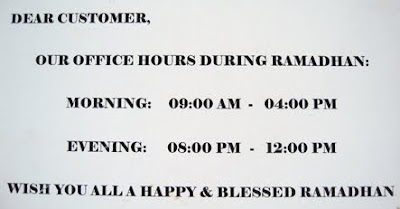Gargoan also spelt Gaagowan/ Gagowaan/ Garrgawan/ Gagoon/ Garrgowaan/ Qarqowan/ Qarkaan, etc., but all said in the same manner [garr-gaow-wann] occurs half way through the month of Ramadan, on the 14th night when the moon is full.
It's a tradition very similar to the Halloween 'Trick or Treat' and pre-pubescent children dress up in traditional Arabic costumes and go from door to door asking for sweets and nuts from their neighbours. Sometimes they will be given money, but usually they will return home with a mixture of wrapped sweets, dried figs and peanuts.
 Image taken from
Image taken from:
www.mepeace.orgSupermarkets sell mixed bags in their fruit and veg section for adults to decant into smaller bags for the young visitors. All children taking part in gargaon will carry a bag in which to put the treats they will be given. It is very similar system to Halloween.
One tradition that the children carry out is that they sing the following song at each door:
ArabicGar-go-an Gar-go-an
Aa’raa-dat ar-lee-kom ya al sigh-yim
Sa-laam wa el-de-hom yah-allah
Wa-khl-la lan-ma ya-allah
Ay-yet al maa-kee-dah ya-allah
Ya sh-fee-agh aa-lee-ma
EnglishGargoan, Gargoan
Give us what God gave you,
God bless you,
to God’s house may you go,
and may poverty never know its way to your door
 Image taken from: Loredana MantelloHere's what one of the Saudi Newspapers Wrote about Qarkaan
Image taken from: Loredana MantelloHere's what one of the Saudi Newspapers Wrote about Qarkaan“During the afternoon hours children go out with their bag, skipping from house to house, through the alleys and neighborhoods collecting all sorts of treats like money, sweets and nuts as they sing traditional songs. Families prepare their streets for the festive occasion with decorations and by hanging lights on their houses. Streets, patios and neighborhood squares fill with people.
In Qatif young men hang palm tree leaves and bows of colored lights and other decorations over the street furniture. They stop passing cars to sprinkle their drivers and passengers with rose water, wafting them with incense and offering them sweets and cold drinks. Car drivers find themselves delayed by barriers of festive crowds and barrages of loudspeakers calling to the merrymakers and welcoming them.”
Taken from: arabnews.com















